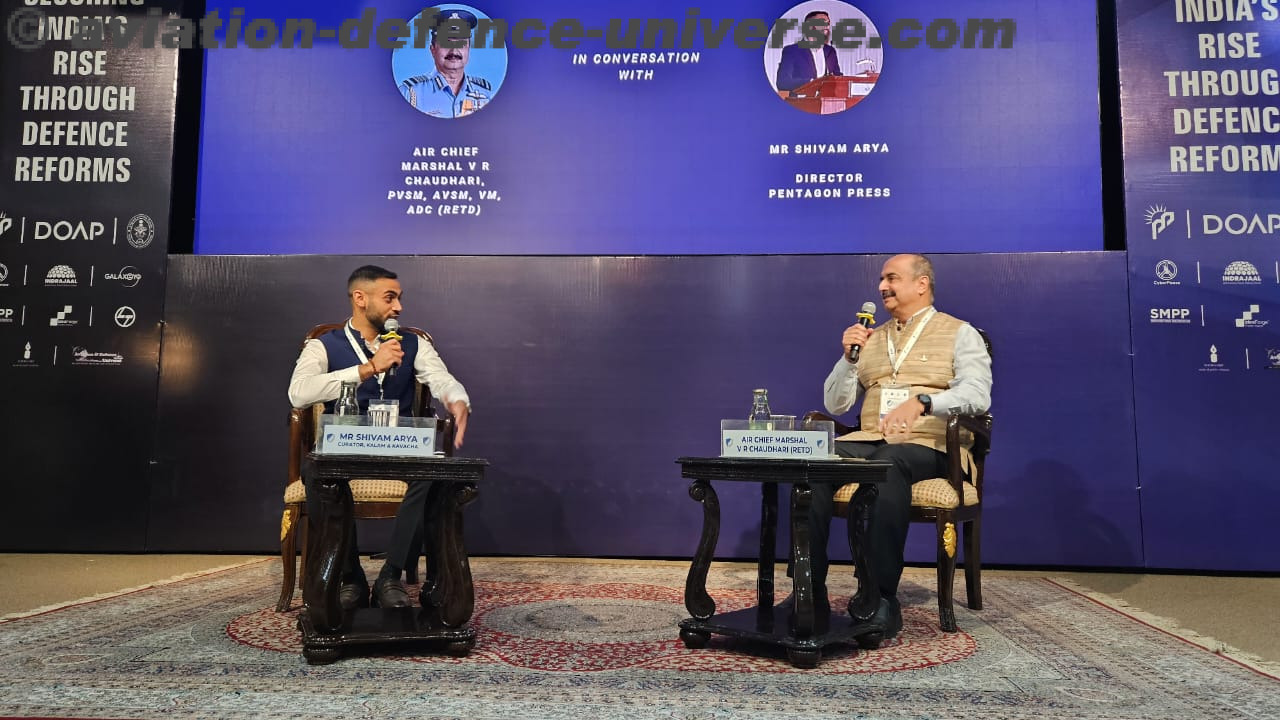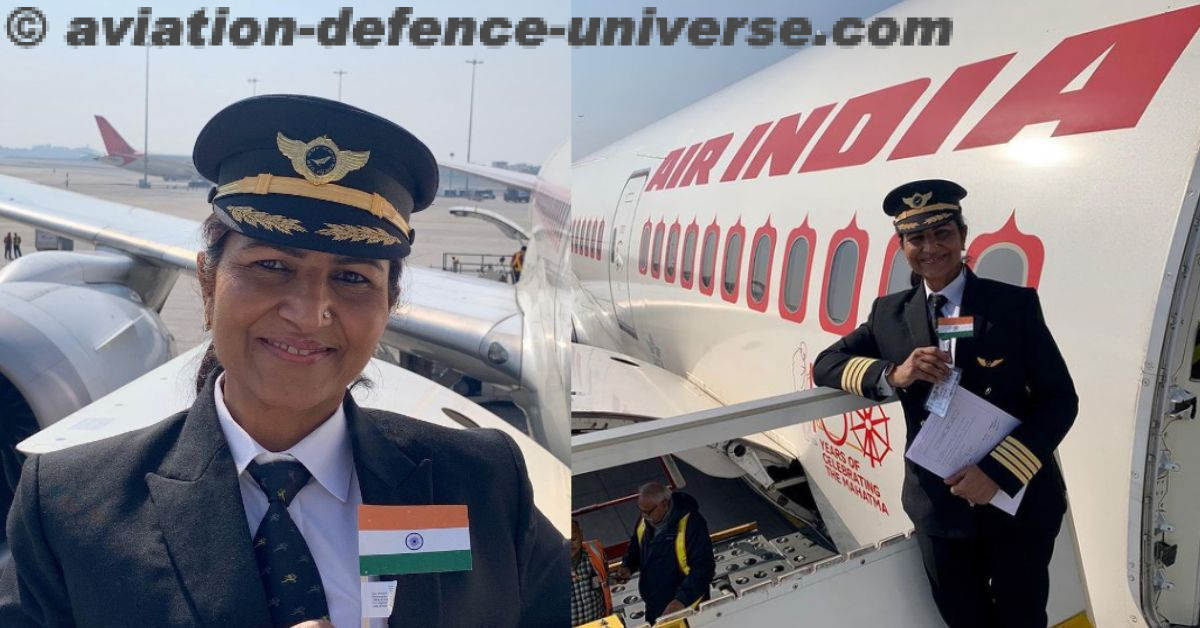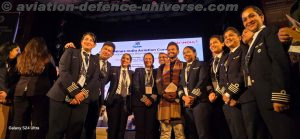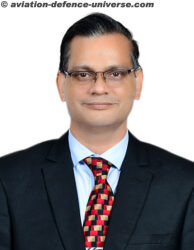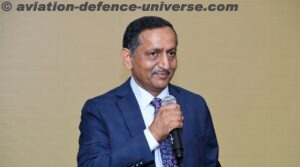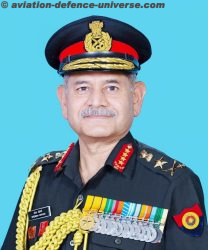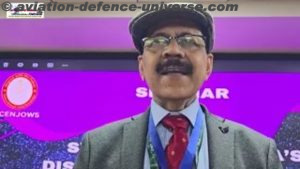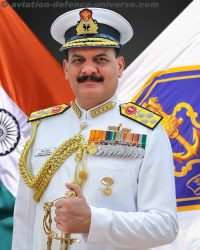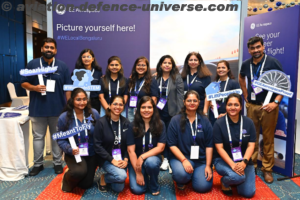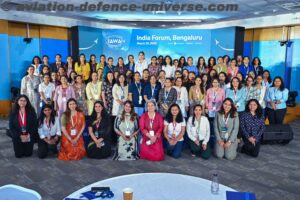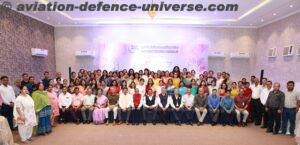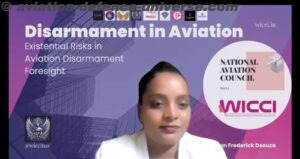- Empowering Women to Soar
- Championing change in aviation
- A family of pilots which inspires
By Sangeeta Saxena
New Delhi. 02 December 2024. Captain Nivedita Bhasin’s illustrious journey as one of India’s pioneering women pilots is an inspiring testament to breaking barriers and soaring beyond limits. Joining Indian Airlines in 1984 as the third woman airline pilot in the country, she has been a trailblazer, achieving multiple milestones in her career, from flying the Dreamliner to championing women’s empowerment. In this exclusive interview with Aviation & Defence Universe (ADU) , Captain Nivedita Bhasin shares her journey, challenges, and aspirations, offering a glimpse into her life as an aviator and her vision for the future.
ADU. How has the journey which started in a male bastion been?
Nivedita Bhasin. My journey in aviation has been eventful and fulfilling. I became India’s third woman airline pilot in 1984, following Captain Durba Banerjee and Captain Sudamini Deshmukh. From a time when women made up only 2% of pilots to now leading the world with 15% women airline pilots in India, it’s been an incredible transformation. I had the honor of flying several landmark flights, including the world’s first all-women crew flight in 1985 and becoming the youngest jet commander of a passenger airline in 1990. Later, I flew wide-body aircraft like the Airbus B300 and Boeing 787 Dreamliner, marking milestones as India’s first female Dreamliner captain and instructor.
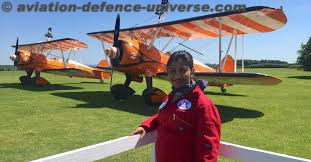 ADU. What inspired you to pursue a career in aviation?
ADU. What inspired you to pursue a career in aviation?
Nivedita Bhasin. My passion for aviation started early. As a schoolgirl in Delhi, I often watched planes flying over and dreamed of being in the skies. While my family didn’t have a background in aviation, their unwavering support allowed me to chase my dreams. My desire to excel in a male-dominated field motivated me further.
ADU. Can you tell us about your career movements and your initial motivations to join aviation?
Nivedita Bhasin. My journey in aviation started as a passion. I trained rigorously and became a general manager of flight safety, followed by the roles of chief of flight safety and executive director, all while continuing to fly and complete my academic training. Each milestone felt fulfilling, as education complemented my professional growth, allowing me to feel complete and connected to my goals.
ADU. What were the challenges you faced as a woman in a male-dominated field?
Nivedita Bhasin. One major challenge was building trust within the industry, especially when I became the first pilot mother in the airline. At that time, there was no maternity policy, so I had to navigate uncharted territory, even flying during my pregnancy to prove women could balance their professional and personal lives. Another issue was dealing with workplace harassment. Back then, we didn’t have support systems or committees for women’s issues, so we had to endure inappropriate behaviour in silence. I also faced professional challenges, such as biases during evaluations, but I stood my ground and earned respect through my work.
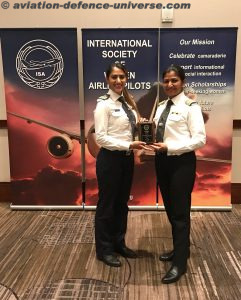 ADU. You’ve been a strong advocate for women’s empowerment. Tell us about your initiatives in this space.
ADU. You’ve been a strong advocate for women’s empowerment. Tell us about your initiatives in this space.
Nivedita Bhasin. Empowering women has been my passion. After retiring in 2021, I dedicated myself to volunteering full-time. I’m part of the 99s, an international women pilots’ organization, and I work to inspire young girls by conducting awareness programs in schools. Through interactive sessions and activity books, we aim to introduce children to the myriad opportunities in aviation.
ADU. What is your advice to young women aspiring to enter aviation?
Nivedita Bhasin. Believe in yourself and never let societal norms hold you back. Success requires a balance between career, home, and health—both physical and mental. It’s important to build resilience and seek support when needed.
ADU. Could you share a standout moment in your career?
Nivedita Bhasin. Flying Air India’s second Dreamliner delivery from Charleston to Delhi in 2012 was a highlight. Becoming the first female instructor on the Boeing 787 was another proud moment. These milestones were a culmination of hard work and passion.
ADU. How has the aviation industry evolved for women since you started?
Nivedita Bhasin. It’s heartening to see more women in every aspect of aviation, from pilots to technicians. The introduction of policies like maternity leave and redressal committees has made the industry more inclusive. However, there’s still work to be done in ensuring equal opportunities and addressing biases.
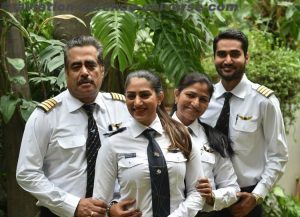 ADU. You mentioned being the first generation in your family to enter aviation. How has that influenced the next generation?
ADU. You mentioned being the first generation in your family to enter aviation. How has that influenced the next generation?
Nivedita Bhasin. It has been challenging but rewarding as a first-generation pilot. Both my children have followed in my footsteps, becoming accomplished pilots. My son is a 777 captain and a trainer, while my daughter is a captain with Indigo. They saw my struggles and were inspired to carve their paths in aviation, achieving everything through their own efforts.
ADU. What role do you think family plays in shaping one’s career, especially for women in male-dominated fields?
Nivedita Bhasin. Family support is crucial, but individual performance and motivation ultimately define success. My daughter, for example, chose not to rely on us and built her career independently, setting an inspiring precedent. It shows that while inspiration may come from within the family, dedication and hard work make the difference.
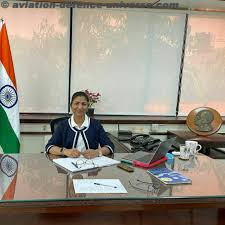 ADU. You’ve been part of initiatives like the 99s. Can you elaborate on its role and your contributions?
ADU. You’ve been part of initiatives like the 99s. Can you elaborate on its role and your contributions?
Nivedita Bhasin. The 99s is a unique global organization for women pilots, requiring a valid pilot license for membership. My journey with the 99s started the day I received my commercial license in 1983. I’ve been a member since then. In the year 1929, Amelia Earhart called upon all the women pilots of the United States of America to come and meet at Curtis Field, Long Island. And there she said we must form a club for women pilots. So when they met, 99 women pilots turned up. And so they coined the term, the 99s. And Amelia Earhart was the first president. She was also the first woman pilot and also first to fly across the Atlantic. She’s an icon like Bessie Coleman, Amelia Earhart, Durba Banerjee. So in India, we want women, girls, boys, everyone to know these names.
Nobody knows these names. So my main concern is that some of us are the living link between the past and the present. We have flown with the pioneers, but the youngsters don’t know about them. So how do we raise the awareness? So through the 99s, our organization, like I was telling you earlier, our pilots were flying as early as the 60s. So in 1965, one 99 came to India. She was a nurse by profession. And she saw these women flying in saris at the Bombay Flying Club. And she saw them and she said, wow, I would like to invite you to become a member of our organization. And subsequently, she sponsored three women to become members of the 99s. And then in 1976, she came back again to India. And with six charter members, India’s section 99s was formed on 26 March 1976, in Bombay. Since then it is dedicated to fostering connections among women pilots and promoting aviation awareness. We’ve faced challenges in maintaining membership, but now, with over 52 members nationwide, we are actively engaging through meetings and outreach programs.
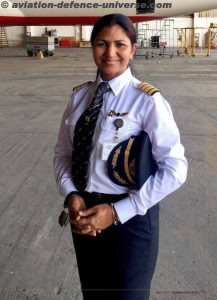 ADU. What future initiatives are you planning, particularly for encouraging women in aviation?
ADU. What future initiatives are you planning, particularly for encouraging women in aviation?
Nivedita Bhasin. A recent mandate from the Prime Minister focuses on introducing aviation awareness in schools across India. I’ll soon visit schools in Arunachal Pradesh to inspire young girls. We believe in the mantra: “If I can fly, you can fly.” Our efforts aim to ignite aspirations and bring aviation to every corner of the country.
ADU. How do you see the role of education in advancing gender equality in aviation?
Nivedita Bhasin. Education is transformative. Including stories of women pilots in NCERT textbooks will introduce students to role models early on. By sharing histories and achievements of pioneering women in aviation, we aim to inspire a new generation to dream big and pursue careers in this exciting field.
ADU. Do you have plans to document these experiences in a book?
Nivedita Bhasin. I’ve considered it, but other priorities have kept me from pursuing it fully. However, collaborating on a comprehensive book about women pilots, covering pioneers and their contributions to aviation history, is an idea I’m passionate about.
ADU. You’ve spoken about inspiring young women. What message do you want to share with them?
Nivedita Bhasin. Believe in yourself and your dreams. The path may be tough, but it’s achievable. It’s not just about women joining aviation; it’s about empowering families to support their daughters’ ambitions, ensuring they can soar as high as their dreams.
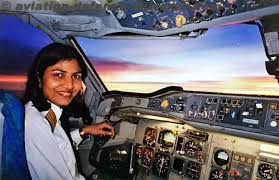 ADU. What are your plans for the future?
ADU. What are your plans for the future?
Nivedita Bhasin. I plan to continue my work with the 99s and expand outreach programs to inspire the next generation of aviators. I also want to write a book capturing the stories of pioneers in Indian aviation to preserve their legacy.
Captain Nivedita Bhasin’s journey is a story of resilience, ambition, and breaking barriers. From setting aviation records to mentoring future generations, she has left an indelible mark on the industry. As an advocate for women’s empowerment and a trailblazer in Indian aviation, her legacy continues to inspire.
As told to Sangeeta Saxena












